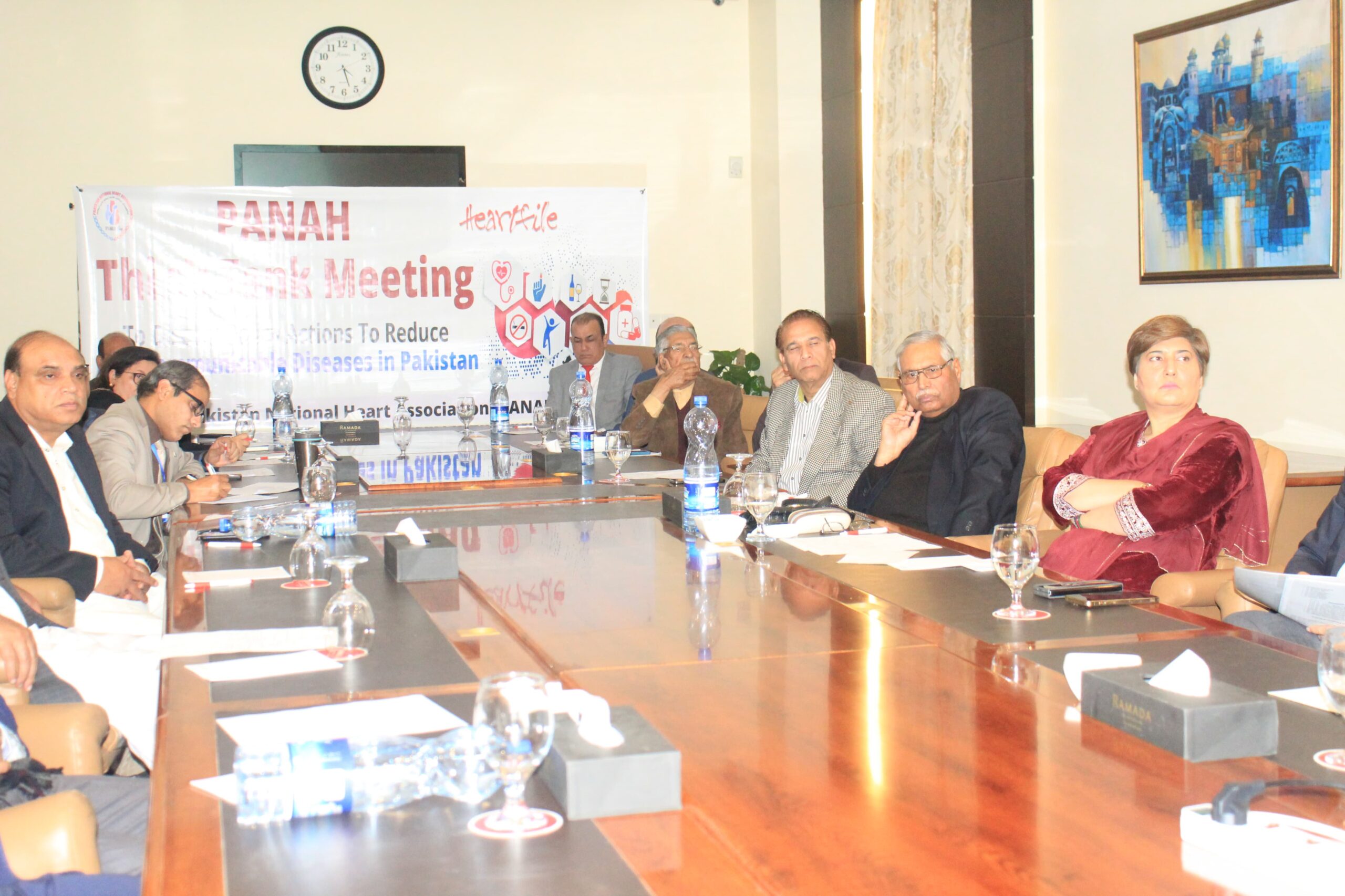PANAH conducts Think Tank Meeting on NCD Reduction in Pakistan
Islamabad– Non-communicable diseases (NCDs) have emerged as the leading cause of death globally, accounting for approximately 60% of all deaths in Pakistan. These diseases significantly diminish productivity and human capital while escalating healthcare costs due to severe illness, disability, and death. Key contributors to NCDs include high sugar consumption, ultra-processed foods, tobacco use, and physical inactivity. PANAH has established a think tank based on top health experts and other professionals to guide PANAH to take effective measures to reduce NCDs in Pakistan. 5th meeting of this think tank was conducted at a local hotel in Islamabad on Thursday, January 9th. Key guest were Maj Gen (r) masud Ur Rehman kiani, Dr. Saba executive director Heart Files, Dr. Afsha tahseen Bajwa Ex. Chairman pakistan commission for child Right, Dr. Col. Shakeel Mirza, Dr. Qayyam Awan, President press club Islamabad Mr. Anwar Raza, General Secretary PANAH Mr. Sanaullah.
President PANAH, Maj Gen. (R) Masud Ur Rehman Kiani, expressed grave concern over the alarming rise in heart diseases and related conditions. He emphasized the importance of addressing modifiable risk factors for NCDs and underscored PANAH’s expanding role in educating the public about proven, effective prevention strategies. Highlighting diet-related risk factors, he stated, He seek the guidance from think tank to work more effectively for reduction of modifiable risk factors of these NCDs. General Secretary PANAH Mr. Sana ullah ghumman has presented the progress report of the last think tank meeting and highlighted key achievements
Respected guest advocated for the immediate adoption of Front-of-Pack Labels (FOPL) and taxing sugary drinks will consumers understand the nutritional content and quantity of the foods they consume. During the meeting, participants agreed that one of the primary drivers of the increase in NCDs is the prevalence of unhealthy foods, particularly ultra-processed items high in salt, sugar, and fat. They discussed agreed that front-of-pack warning labels will contribute positively in reduction of NCDs in Pakistan. After thorough deliberation, the think tank established various sub-committees, assigning specific roles and responsibilities to each. This strategic initiative by PANAH aims to combat the growing NCD crisis in Pakistan through comprehensive education, policy advocacy, and the implementation of proven preventive measures.




